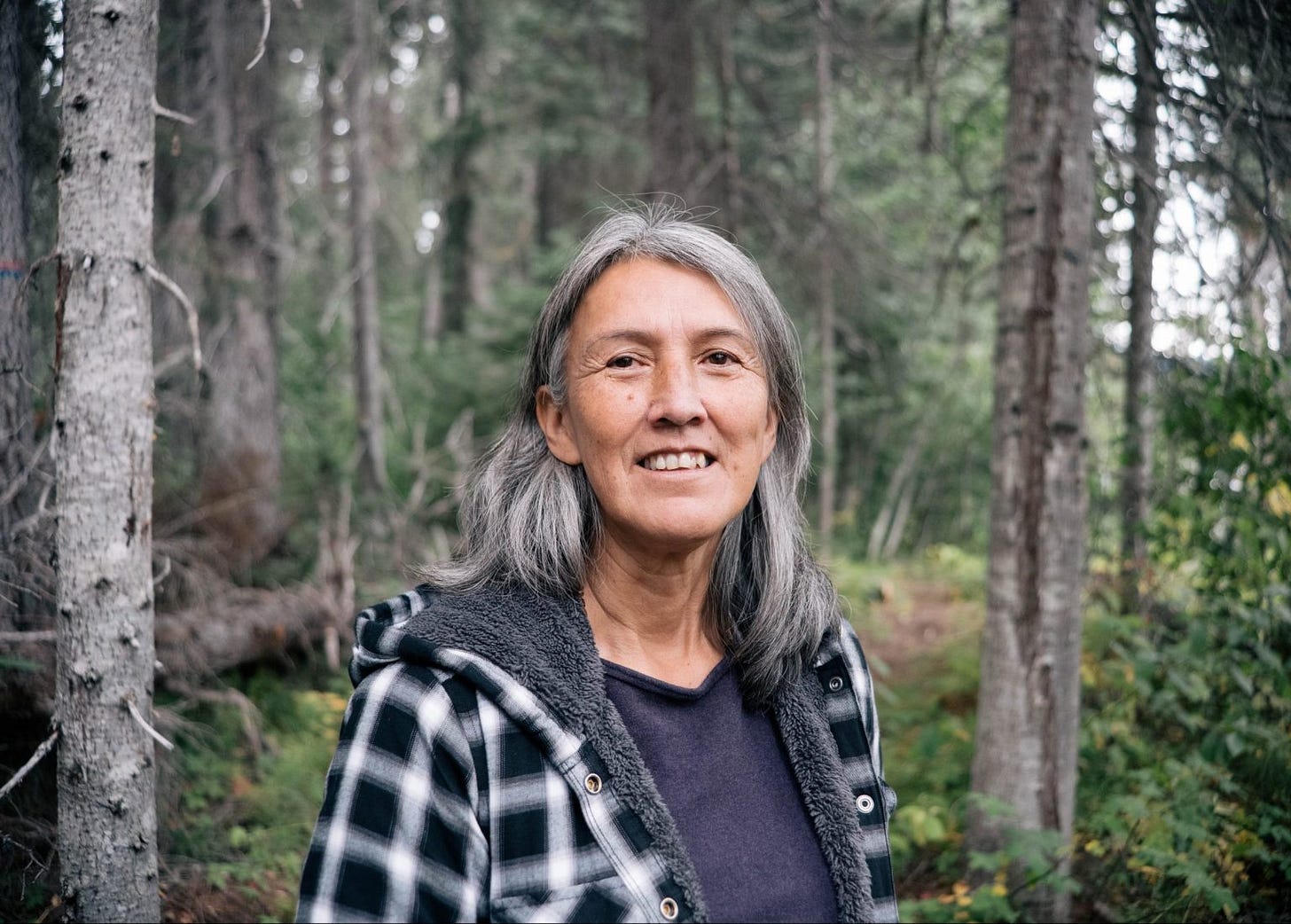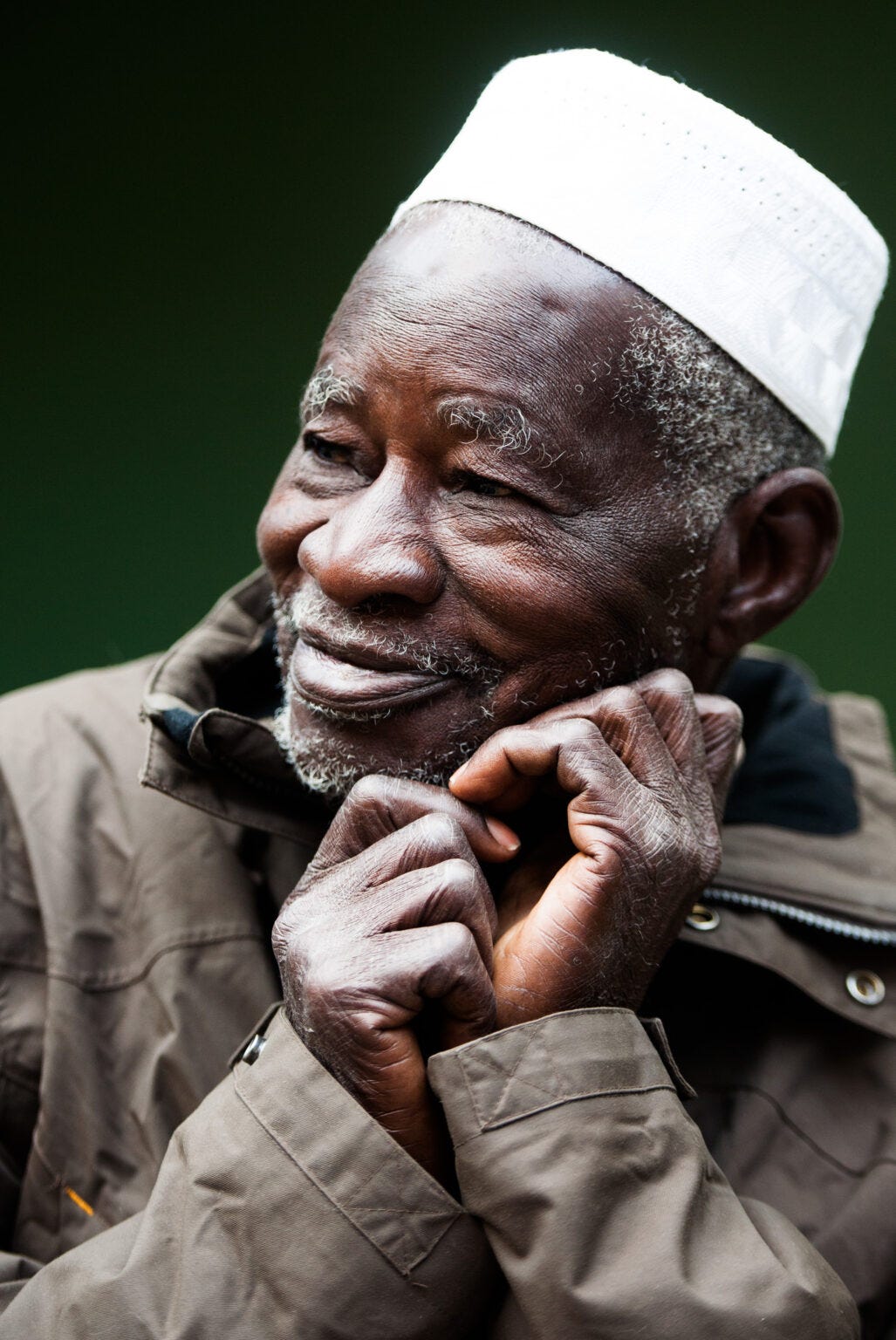What is the Right Livelihood Award?
And what can its winners show us about a regenerative future?
Back in 1980, a man named Jakob von Uexkull noticed that the categories of the Nobel Prize – by far the most prestigious award to date for societal achievements – were beginning to feel too narrow. He felt that they concentrated too much on the interests of industrialized countries and failed to answer a lot of the pressing challenges of the time. He petitioned the Nobel committee to include categories for environmental and social justice awards, even offering to partially fund the new categories by selling his extensive stamp collection, but he was refused. So he started his own.
The Right Livelihood Award has been around since 1980 and exists to highlight the courageous and world-changing efforts of people and movements around the world. There are no categories for the award, as they believe that diverse solutions are needed to the problems we face. They also provide lifelong support to their recipients, who are often from countries where their activism is met with persecution from their government. They also don’t limit the prize to one recipient, or a small team; instead, entire movements can be awarded a Right Livelihood award, emphasizing that meaningful action is rarely individual in nature.
Reading through the list of laureates is highly enriching. In it, you’ll find stories from all over the world of people acting courageously, often in very difficult circumstances, to bring about a better world. Sometimes they are well-known, like Canadian environmentalist David Suzuki who was a recipient of the award in 2009, but oftentimes they’re people who are not household names but whose lives encapsulate the concept of regeneration – bringing life into the center of all of our actions. This week, we wanted to highlight a few of their stories.
Freda Huson, who received the award in 2021, is a female chief (Dzeke ze’) of the Wet’suwet’en people. As the coordinator of the Unist’ot’en camp that emerged as a key point of resistance to the Coastal GasLink Pipeline, which would run through her people’s ancestral territory without their consent, she has been a fierce advocate for Indigenous sovereignty and a powerful opponent of extractive projects. The violent armed raids conducted by tactical units of the Royal Canadian Mounted Police, and Huson’s arrest following their nonviolent protest at the Unist’ot’en camp, led to nationwide protests about the treatment of Indigenous peoples in Canada. Their resistance has significantly delayed the construction of the pipeline, which remains unfinished.
“The work I’ve been recognised for is teaching people our ways, which we are taught from a very young age: to take care of the land that sustains us.”
Yacouba Sawadogo, who received the award in 2018, is known in his native Burkina Faso as “the man who stopped the desert.” After historic droughts and crop failure in 1980 left his people in famine, he began experimenting and came up with an innovative method to reforest and regenerate barren land. He successfully turned a 40-hectare area that was previously completely desertified into a thriving forest with over 60 species of trees and bushes. Although he was initially met with resistance from local people for diverging from traditional land use practices, the benefits were impossible to deny. He has now trained thousands of other farmers in the method, leading to the regeneration of tens of thousands of hectares of degraded land. Farmers now enjoy improved soil fertility, rainwater conservation, and food security. The method, which includes agroforestry techniques like planting grains alongside trees and keeping bees for pollination, is now well-respected in the region and beyond. It offers farmers a low-cost, culturally appropriate way to adapt to climate change and strengthen their livelihoods.
“I don’t want to eat today and leave future generations with nothing to eat.”
Pat Mooney, an early Canadian recipient of the award in 1985, is an author and expert on agricultural development who has pioneered a lot of work around agricultural biodiversity, biotechnology and its impact on rural communities. After witnessing the degree of loss of genetic biodiversity in the 1970s, he drew international attention to the issue and persuaded the UN to implement international seed banks. He has long been critical of the corporate monopolies and intellectual property regimes that dominate global seed systems, and of the negative socio-economic impacts that these new technologies frequently have on traditional farming communities. He is the co-founder of ETC Group, a Canadian organization that does ongoing work surrounding biotechnology, seed rights, food sovereignty and genetic diversity.
“The diversity of agriculture and human culture are bound together. In the end it is up to all of us - as governments and communities and individuals - to prize diversity.”
Lottie Cunningham Wren is an Indigenous lawyer from Nicaragua who received the award in 2020 “For her ceaseless dedication to the protection of indigenous lands and communities from exploitation and plunder.” She has pioneered several legal strategies to protect indigenous and Afro-descendant people from having their land taken through land grabbing and other illegal seizures. She was part of the first trial at the Inter-American Court of Human Rights that secured collective rights for Nicaragua’s Indigenous peoples. It ruled that Nicaragua had violated Indigenous communities’ rights by extracting resources from their territories without their consent. This ruling led to a process where over 300 communities received formal titles to codify their land into territories known as “Autonomous regions.” This demarcation has protected these lands from further exploitation and gives Indigenous communities the right to self-determination, a landmark ruling for Indigenous rights. Cunningham Wren’s legal tactics have been utilized by many other Indigenous communities around the world and she continues to train community leaders around the world.
“As indigenous people, we fight for our nature, and our concern is the injustice of a corrupt state like Nicaragua that doesn't respect its own laws.”
All of these individuals’ lives show us what it means to dedicate one's life to regenerative principles – to put life at the center of all of our decisions and pursue them tirelessly. However, the disparity between the recipients of the Nobel Prize and the Right Livelihood Award reveals a lot about what is currently valued in our culture, and what we see as our greatest achievements. In the past, the image of the lone genius like Albert Einstein or Thomas Edison captured the public imagination. The archetype of this character is that of an exceptional, solitary scientist who comes across strokes of genius that reshape the world.
This image no longer reflects the reality of how advancements in society are made. The Nobel Prize still carries the “Rule of Three,” which states that no more than three people can receive the award. Especially in the realm of science, advancements are very much a team effort. For example, in 2016, a team of scientists was awarded the Nobel Prize for making the first observation of gravitational waves. The paper had over 1,000 scientists involved, but only three received the prize. Because of this, the award has come under criticism in recent years.
Alfred Nobel wanted his award to be given to "those that had brought the greatest benefit to humanity.” While there’s no denying that the recipients of Nobel Prizes have made discoveries that have advanced society, the Right Livelihood award reminds us that those with the greatest impact often come from entire communities working together, rather than one individual working alone. They show us the strength that lies behind movements. These communities are from diverse backgrounds, locations, and sectors. And their contributions remind us how interconnected the problems we face really are, and just how many creative ways there are to solve them.
The Man Who Stopped the Desert is a 2010 documentary about Yacouba Sawadogo and gives great insight into his life and his broader story. It’s a great watch.
We recommend this article from the Atlantic titled “The Absurdity of the Nobel Prizes in Science,” which explores the nature of the scientific process as a collective one, rather than one led by exceptional individuals.
This piece was written by Thea Walmsley and edited by Gareth Gransaull.










